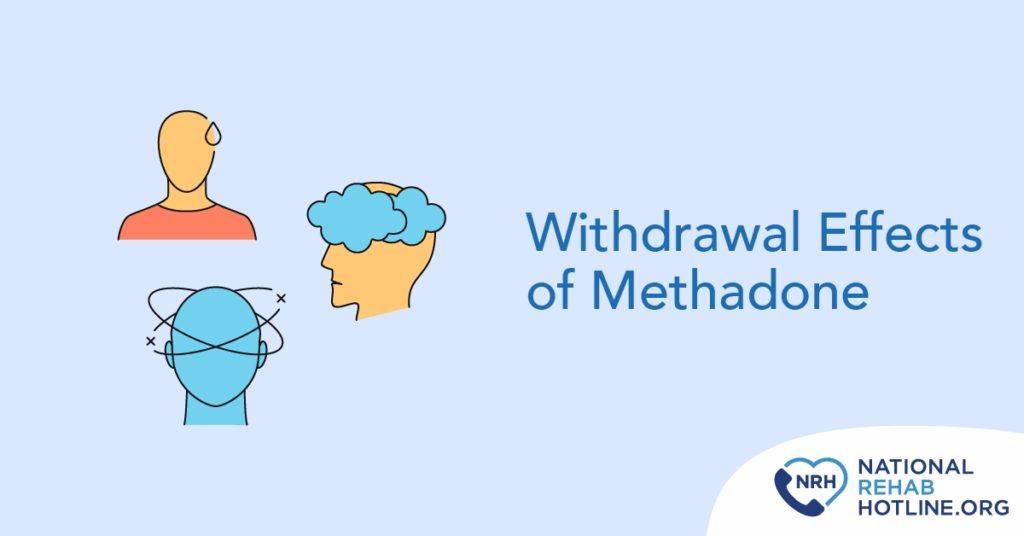Many people use methadone when recovering from another kind of drug addiction. As 82,000 people died from opioid overdoses in 2022, it’s very important to come off street drugs like heroin, but many people find that methadone poses its own problems. Let’s take a look at why methadone withdrawal symptoms occur and how you can manage them to successfully recover.
What Is Methadone, and Why Is It Prescribed?
Methadone is a long-acting opioid medication primarily prescribed to treat opioid addiction or misuse, as it can help you reduce or stop using illicit opioids. It works by binding to opioid receptors in the brain, reducing cravings and withdrawal symptoms without producing the same intense high. However, dependence on methadone itself can develop. Stopping methadone, especially abruptly or without medical guidance, triggers significant withdrawal symptoms.
Why Methadone Withdrawal Happens
Regular methadone use can lead to physical dependence. This means the body adapts to the constant presence of the drug and relies on it to function normally. When methadone levels drop significantly or use stops, the central nervous system becomes overactive, leading to withdrawal. This problem can occur whether methadone was taken as prescribed or misused. The long half-life of methadone (24-36 hours or more) means methadone withdrawal symptoms typically start later than with shorter-acting opioids like heroin but often last considerably longer.
Common Physical and Psychological Methadone Withdrawal Symptoms
Methadone withdrawal symptoms can cause both physical discomfort and intense psychological distress. The combination of symptoms can make the process of coming off methadone feel particularly unmanageable if you don’t have the right support. Common effects include:
- Physical symptoms. Muscle aches and pains, abdominal cramps, nausea, vomiting, diarrhea, excessive sweating, chills or goosebumps, runny nose, watery eyes, yawning, tremors and difficulty sleeping (insomnia) are all common methadone withdrawal symptoms.
- Psychological symptoms. You might also experience intense drug cravings, anxiety, restlessness, irritability, depression, general unease, difficulty concentrating or feelings of hopelessness.
This intense combination creates a feedback loop where physical pain worsens psychological distress and vice versa, making self-management extremely difficult and relapse a significant risk without structured intervention. That’s why it’s so important to get appropriate support when coming off methadone.
Timeline of Withdrawal Stages
Methadone withdrawals have a relatively long timeline due to the drug’s long half-life. Here are the key stages most people experience.
- Onset (24-36 hours after last dose). Symptoms usually begin 1-2 days after the last dose, but sometimes they don’t start until later. Early signs include anxiety, sweating and insomnia.
- First week. Symptoms typically intensify and peak around days 3 to 7. This phase involves the most severe physical symptoms like cramping, nausea, vomiting, diarrhea and intense cravings.
- Long-term withdrawal (weeks to months). Some individuals experience milder but still disruptive symptoms like cravings, anxiety, depression, sleep disturbances and low energy that can linger for months. This prolonged discomfort significantly increases relapse risk.
Medical Detox and Treatment Options
Medical detox is strongly recommended for methadone withdrawal due to the severity and duration of symptoms, the high risk of relapse and the potential for complications like dehydration from vomiting and diarrhea. Attempting to detox cold turkey alone is rarely successful and can be dangerous. A supervised medical detox provides the following advantages, which can help you ultimately succeed. This includes:
- Safety and monitoring. Health care professionals monitor vital signs and manage complications.
- Medically managed taper. The safest approach involves slowly reducing the methadone dose over an extended period (weeks or months), allowing the body to adjust gradually and minimizing withdrawal intensity. Sometimes other medications are used to ease specific symptoms.
- Symptom relief. Medications can help manage nausea, vomiting, diarrhea, anxiety and muscle aches. For example, doctors might prescribe loperamide, an opioid that affects the gut but not the brain, to treat diarrhea without jeopardizing your detox progress.
- Emotional support and stabilization. Access to counseling and support during the difficult detox phase can help you stay strong during methadone withdrawals.
After detox, ongoing treatment is vital. Your health care team can put together a plan for you, which might include medication, therapy or support groups. These treatments work together to tackle the causes of addiction and help build lasting recovery skills.
Coping Strategies and Support Resources
Managing methadone withdrawal and building lasting recovery is a drawn-out but worthwhile process. The long duration and intensity of symptoms demand specific strategies and strong support. Positive coping strategies include:
- Following your medical team’s plan closely. Stick to your prescribed taper schedule and never skip appointments. Staying consistent with your treatment is key for recovery.
- Working actively in therapy. Engage in counseling or behavioral therapy to develop practical tools for handling cravings, triggers and the underlying reasons for addiction.
- Building routines that support healing. Focus on nutritious meals, gentle movement (even small amounts help) and regular sleep patterns to help your body recover.
- Finding your recovery community. Connect regularly with understanding people, such as family, friends, therapists or local support groups, who can encourage you on your journey.
- Learning daily stress relief techniques. Practice simple methods like focused breathing or mindfulness, especially during tough days, to calm your nervous system.
- Being patient and practicing self-compassion. Recovery has ups and downs. Acknowledge your strength, celebrate progress and reach out for help immediately if you have a bad day or feel overwhelmed.
Get Help for Methadone Withdrawal
Methadone withdrawal can be a daunting experience, but you don’t have to face it alone. Medical supervision and comprehensive treatment drastically increase safety and the chances of successful recovery. If you or someone you care about is considering stopping methadone or struggling with withdrawal symptoms, reach out for professional help immediately. The National Rehab Hotline provides confidential support and can connect you with appropriate resources 24-7. Don’t wait for symptoms to become severe; support is available now. Reach out to us today.

